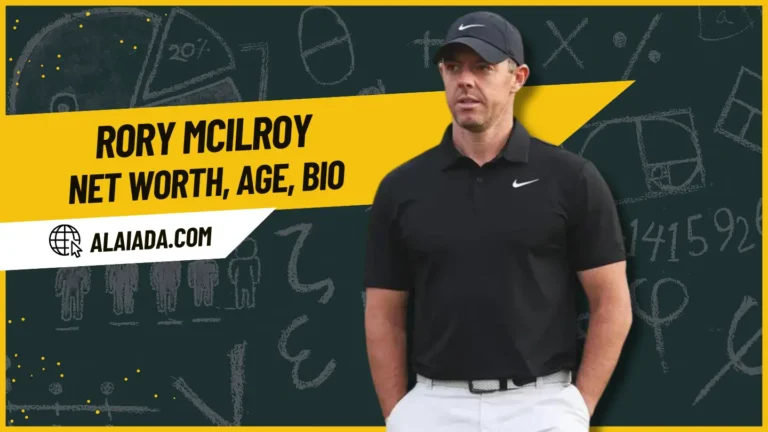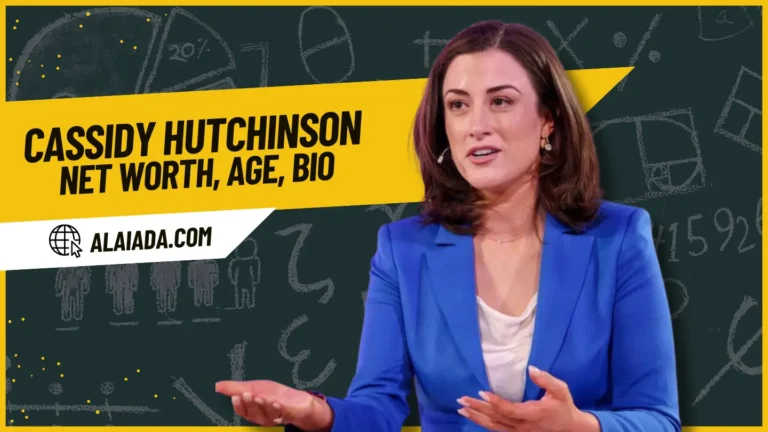Rick Silva Net Worth 2024: Bio, Age, Golf, Checkers, CEO & Artist

Rick Silva net worth , the CEO of Checkers/Rally for the past seven years, possesses a captivating and dynamic personality that sometimes leaves journalists questioning whether it’s all a performance. There’s a lingering suspicion that he might have consumed an excessive amount of coffee, putting on a show for the media.
However, as time unfolds, it becomes increasingly clear that what you see is simply Rick being himself, unapologetically genuine and authentic in his approach to leadership.
Meet the big boss, Rick Silva, who heads up Checkers. Now, let’s talk about his infectious energy and how he tackles everything with gusto. This lively attitude of his has played a significant role in turning things around for Checkers while he’s been in charge. But guess what? Rick isn’t just good at doing things himself; he’s also a pro at picking awesome people and letting them do their thing. The secret sauce?
Rick creates an uber-friendly work atmosphere where everyone on the management team is on the same page about how cool it is to work together. They all agree – Rick is the master of making things happen at Checkers!
| Full Name | Rick Silva |
| Gender | Male |
| Nationality | American |
| Notable as | CEO of Checkers |
| Profession | Business man |
| Been a CEO for how many years? | Seven (7) years |
| Net Worth | $100 million |
| Height | 6-foot-1 |
His Journey Thus Far
Meet Rick Silva, the CEO of Checkers, who stands tall at 6-foot-1 and has a sturdy build, giving him a commanding presence. When he speaks, it’s not your typical business jargon; instead, he prefers pouring out emotions rather than using technical language. Picture this: when he gets really excited, which happens quite often, he even lowers his voice to a near-whisper, as if cranking up the volume might shatter a window.
Now, let’s delve into the fascinating story of Silva’s life. Born Enrique Silva in Union City, N.J., to Cuban emigre parents who fled the Castro regime in 1962 with just a single suitcase, his early years were marked by struggles. His father, a banker, and his mother, a pharmacist, found it challenging to secure employment in Miami, where they initially settled. Despite their difficulties, the family, with three sons, eventually moved to Westchester in Miami, opting for affordability over a Cuban enclave.
Life in Westchester wasn’t a walk in the park for the Silva family. They faced ethnic slurs and clashes with locals who were less than welcoming to the growing Latino community. According to Silva, Westchester at that time was reminiscent of the Deep South in Miami. However, these challenges instilled in Silva and his brothers a deep work ethic that would shape their future.
Silva attributes his relentless drive to the immigrant experience, where priorities were centered around putting food on the table when resources were scarce. Growing up with limited means, Silva learned to play offense, emphasizing the importance of hard work over unnecessary luxuries.
In the midst of Silva’s middle school years, his parents divorced, and he lost contact with his father. His mother, determined to provide for her family, earned a pharmacist license and opened Bird Road Pharmacy near their home. The Silva family tirelessly worked at the pharmacy, instilling in Rick a hunger for a life in the business world.
Silva’s academic journey took him to the University of Pennsylvania Law School, where he graduated. While he initially pursued accounting as an undergrad, he later found his passion in law. His professional career kicked off at the Miami law firm Greenberg Traurig, specializing in real estate transactions.
However, his entrepreneurial spirit and longing for the business world led him to answer corporate counsel want ads from Ryder and Burger King. Choosing the latter in 1993, Silva was drawn to Burger King’s progressive environment and the opportunity for lawyers to transition into business roles.
At that time, Burger King might have trailed McDonald’s in sales, but it was a hub of young, intelligent minds, setting the stage for Silva’s journey into the corporate world.
Ceo Says His Appearance on ‘Undercover Boss’ Was Worth $20 Million in Advertising
Remember when Checkers CEO Rick Silva appeared on the CBS reality show “Undercover Boss” in February? It was quite the buzz! Silva not only revealed his true identity on the show but also surprised everyone by shutting down a whole Checkers fast-food joint for the night.
Fast forward a few months, and Silva is still feeling the positive impact of that TV appearance. According to him, it turned out to be a significant victory for Checkers. The attention and publicity from the show have been a big boost for the fast-food chain. People are talking about Checkers, and the exposure has translated into positive outcomes for the business. It just goes to show that sometimes, a little TV magic can go a long way in making a brand shine!
Cool Gifts to Give Seniors of Any Age
So, let’s talk numbers! After Rick Silva, the Checkers CEO, made his star appearance on “Undercover Boss,” his team crunched some serious digits. According to Erin Dostal from Nation’s Restaurant News, the impact of that TV stint was like hitting the jackpot in advertising – we’re talking about an estimated equivalent of a whopping $20 million!
Now, fast forward to the current year, and Checkers is riding high on success. Silva proudly shares that their same-store sales have surged over 5 percent. Talk about perfect timing for the brand! It turns out that the TV appearance happened at just the right moment, bringing a wave of customer awareness.
Here’s the twist – Checkers usually doesn’t go for national advertising, but guess what? Thanks to “Undercover Boss,” it got some extra spotlight in markets where it doesn’t usually shout about itself. It’s like the TV show opened the door to new territories, giving Checkers an unexpected boost in places it doesn’t usually promote. That’s the power of a well-timed TV moment, making an impact far beyond what anyone could have predicted!
How Rich Is The Culver’s CEO And What’s The Average Pay Of Its Employees
Alright, let’s dive into the delectable world of Culver’s, where Butterburgers and frozen custard reign supreme! If you’ve ever treated your taste buds to the goodness of Culver’s, you know they’re all about celebrating their customers and treating them like family. But here’s the flip side of the coin – while customers leave with satisfied stomachs and warm feelings, do the folks working behind the scenes feel the same, especially when they check their paychecks?
According to the job-sleuths at Indeed, crew members and cashiers at Culver’s are pulling in around $10 per hour. Team members get a slightly higher average hourly rate, clocking in at $10.63. Now, let’s talk about the kitchen maestros – the kitchen team members are rocking an hourly wage of approximately $11.01.
If you’ve ever wondered about those with the coveted titles of restaurant staff and assistant manager, they’re cruising in the hourly payout range of $13. But hold on, the real VIPs of the Culver’s team are the general managers. They’re the ones bringing home the big bucks, with a yearly salary of $49,005. Break it down, and that’s roughly $25.52 per hour.
Now, let’s turn our attention to the big cheese – Culver’s CEO, Rick Silva. How does his yearly paycheck stack up against the rest of the team? The suspense is real! Let’s uncover the numbers and see how the man at the top is playing in the salary game at Culver’s.
Rick Silva Net Worth 2024
Let’s spill the beans on Rick Silva’s journey to the top at Culver’s! Silva stepped into the role of CEO in early 2021, snagging the position from the veteran executive, Joe Koss, who hung up his hat in 2020, as reported by Nation’s Restaurant News in a juicy February article. Since Silva is a fresh face in the CEO chair, the exact digits on his paycheck are still a bit of a mystery.
However, the folks at Comparably spilled some tea, suggesting that the highest-paid executive in the Culver’s realm is raking in a cool $518,000 annually. And since Silva is holding the CEO crown, it’s a reasonable guess that he’s the one bringing in that hefty sum.
Now, let’s dig into Silva’s culinary resume. With a whopping 13 years under his belt as the president and CEO of Checkers & Rally’s Restaurants Inc. and some executive-level magic at Burger King, it’s safe to assume that his annual pay is playing in the big leagues. But that’s not all – when you throw in investments, savings, and whatever consulting gigs he might be doing on the side, it’s a safe bet that Silva’s net worth is comfortably chilling in the millions.
So, there you have it – Silva’s ascent to the CEO throne, the mysterious digits on his paycheck, and a peek into the financial kingdom that makes up his net worth. The saga of Silva’s success is still unfolding, and we can’t help but be intrigued by the man steering the culinary ship at Culver’s!
Undercover Boss Reveals The Most Generous CEO Of All
Let’s dive into the remarkable world of Stephen Cloobeck and his exceptional generosity. His acts of kindness truly stand out, especially considering the growing income inequality in the corporate landscape of America. To put things into perspective, the average American CEO was raking in a whopping $12.3 million in 2012, a staggering 354 times more than the average worker, as reported by the AFL-CIO, the country’s largest federation of trade unions.
Now, let’s zoom in on Diamond Resorts, the company Cloobeck is associated with. While the average salary for Diamond Resorts workers sits at a modest $42,775, aligning closely with the average salary for all workers in the U.S., according to Glassdoor, the details of Cloobeck’s annual salary remain shrouded in mystery, as Diamond Resorts is a privately held company.
However, word on the financial street is that Cloobeck’s net worth is estimated to be a cool $100 million, courtesy of Celebrity Net Worth, an online encyclopedia of celebrities’ financial details.
But here’s the twist – Cloobeck’s generosity isn’t just about the dollars; it’s about the lengths he’s willing to go. His actions have outshone other bosses who had their moment in the spotlight on the “Epic Bosses” episode.
While some shared minor changes in their companies, like Subway inviting workers to pitch sandwich ideas or Checkers and Rally’s CEO Rick Silva announcing a $15,000 gift to workers who turned around a branch, Cloobeck’s grand gestures stole the show.
However, let’s not forget the broader picture. With numerous U.S. workers grappling with minimum wage struggles, and some fortunate enough to have employment, these executive transformations may not impress everyone. Consider Sheldon Yellen, CEO of Belfor, a property-restoration company, who, thanks to his “Undercover Boss” experience, now feels more connected to his workers to the point where he’s contemplating taking public transportation.
So, there you have it – a deep dive into the complexities of executive generosity, income disparities in corporate America, and the varied reactions of workers to these transformative experiences. The narrative unfolds, and the impact of these “Epic Bosses” continues to reverberate in the ever-evolving corporate landscape.
Kael Silva
Born on December 20, 2006, in the United States, Kael is a 13-year-old Sagittarius. His family includes his older sister, Mishka Chantal Silva, and his parents, Rick Silva and Chantal Blancarte. However, details about Kael’s education, siblings, and early life remain undisclosed, as he prefers to keep his personal information private. Despite the lack of information about his upbringing, Kael continues to maintain a low profile and chooses not to share much about his life with the public.

Height and Weight of Kael Silva
Kael Silva, born with hazel eyes and black hair on an undisclosed date, has details about his height unavailable to the public. Unfortunately, there’s no information about his body proportions like height, weight, clothing and shoe sizes, or any specifics about his chest, waist, and hip measurements.
Given his young age, these details may change as he continues to grow and develop. While Kael’s eye color and hair are known, the rest of his physical attributes remain a mystery, leaving fans curious about his overall appearance. As he matures, updates on these aspects may become available, providing a more comprehensive view of Kael Silva.
Career & Professional Life
Back on June 26, 2017, a significant day in Kael’s social media journey, he marked the beginning of his Instagram presence with a photo proudly showcasing his Canon camera. The accompanying caption hinted at a new vlogging adventure. Fast forward to July 2017, where Kael had the chance to meet some big names in the social media realm – Curtis Lepore and Logan Paul. Just a month earlier, on June 16, 2017, he shared moments captured with Anthony Trujillo and Ray Diaz, giving a glimpse into his expanding network.
Not limiting his online presence to just Instagram, Kael ventured into the world of TikTok, amassing a notable following of 56.7 K eager fans. His TikTok content revolves around artistic expressions, ranging from engaging lip-sync videos to catchy dance routines, establishing TikTok as his primary stage for audience interaction. Notably, Kael enjoys featuring his colleagues in these TikTok creations, fostering a collaborative and entertaining online atmosphere. Amidst the ever-growing landscape of social media, Kael has carved out a niche and garnered popularity, particularly among the teenage demographic.
Adding another layer to his social media family, Kael’s sister, Mishka Silva, also holds the status of a TikTok celebrity, frequently making appearances in Kael’s TikTok posts. On November 22, 2018, Kael took the plunge into the TikTok realm by uploading his first video, a delightful duet that showcased his entertaining side. Since then, his TikTok journey has been marked by a consistent stream of engaging content, capturing the attention and admiration of his growing audience.
Beyond the realm of snapshots and short videos, Kael extends his reach to YouTube, where he shares a variety of content with his audience. From vlogs to challenges, Kael keeps the content flowing on his YouTube page, ensuring that his followers have a diverse range of entertainment to enjoy. As the digital landscape continues to evolve, Kael remains an active player, weaving a narrative of creativity and connectivity across multiple platforms, leaving his mark in the vast and dynamic world of social media.
Conclusion
the multifaceted journey of Rick Silva net worth CEO of Checkers/Rally, is a testament to the indomitable spirit that propels an individual from humble beginnings to the zenith of corporate success. Silva’s towering presence, both physically and metaphorically, serves as a symbol of resilience, determination, and an unwavering commitment to authenticity in leadership.
From his early days in a challenging environment, marked by the struggles of immigrant parents and facing adversity in Westchester, Rick Silva imbibed the essence of hard work and perseverance. His formative years, shaped by the trials of a middle-class family, instilled in him a hunger for success that transcended financial prosperity. Silva’s journey through academic pursuits at the University of Pennsylvania Law School and subsequent forays into the legal and corporate realms reflect a trajectory guided by passion and an entrepreneurial spirit.
The pinnacle of Silva’s public exposure came with his appearance on “Undercover Boss,” a move that not only shed light on the inner workings of Checkers but also catapulted the brand into the limelight. The ripple effect of this television magic translated into a substantial boost for Checkers, with estimated advertising value reaching an impressive $20 million. Silva’s strategic leadership and keen sense of timing propelled the brand to new heights, exemplifying the impact of a well-executed media moment.
Delving into the financial intricacies of Culver’s, another culinary empire where Rick Silva now holds the reins as CEO, unveils a tapestry of compensation structures and income disparities within the organization. While the frontline crew members and kitchen staff receive commendable yet modest hourly wages, the general managers emerge as the financial VIPs, showcasing the nuances of the corporate hierarchy. As the orchestrator of this intricate dance, Silva’s own compensation, though veiled in a bit of mystery, is hinted to be substantial, aligning with his seasoned executive status.
The exploration of Stephen Cloobeck’s generosity within the corporate landscape adds an extra layer to this narrative, contrasting the substantial income inequality prevalent in America. The juxtaposition of CEO salaries against those of average workers underscores the evolving dynamics of corporate responsibility and ethical leadership. Cloobeck’s benevolent gestures, standing out even in comparison to other “Epic Bosses,” serve as a poignant reminder of the potential for positive transformation within the executive sphere.
In the grand tapestry of executive narratives, the saga of Rick Silva, entwined with moments of television glory, financial intricacies, and the broader canvas of executive benevolence, unfolds as a captivating story of leadership, perseverance, and the nuanced interplay of success and responsibility. As the corporate landscape continues to evolve, the echoes of these stories reverberate, shaping the narrative of leadership in the ever-changing business world.











